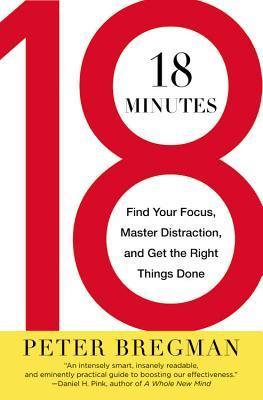More on this book
Community
Kindle Notes & Highlights
Read between
August 29 - September 9, 2020
I have several friends who got married and divorced within a year or two. Every one of them told me they knew, at the time they were getting married, that it wouldn’t work. But they had gone too far and they didn’t know how to stop it.
In a discussion in which you’ve been pushing hard and suspect you might be wrong, begin to argue your point less and listen to the other side more.
My friend asked me the following question: If I were starting from scratch at today’s price, would I purchase the investment? I sold it that day.
He paused for a minute and then answered, “If you take a breath and delay your action, you give the prefrontal cortex time to control the emotional response.”
The first element is your strengths. Over the coming year, play the game that is perfectly suited to your strengths.
Rather than avoid them, embrace your weaknesses and spend your time this year where they’re an asset instead of a liability.
But fitting in has the opposite effect. It makes you dispensable. If you’re like everyone else, then how critical to the business can you be?
Understand your obsessions and you will understand your natural motivation—the thing for which you would walk to the end of the earth.
Which is why you’d better enjoy trying to achieve your goals. Because you’ll never spend ten thousand hours doing anything you don’t enjoy.
Pursuing things you love doing with people you enjoy will better position you to get a job—and much better position you to get a job at the intersection of the four elements.
But a dangerous thing happens when we follow a trail: We stop paying attention to the environment. Since the trail is so easy to follow, we allow our minds to wander and neglect to observe where we are.
Every time I ask a room of executives to list the top five moments their career took a leap forward—not just a step, but a leap—failure is always on the list.
In high-risk, high-leverage situations, it’s better to stay within your current capability. In lower-risk situations, where the consequences of failure are less significant, better to push the envelope.
As long as you create the right environment—one in which you feel challenged, loved, and respected—then you’ll be motivated enough to keep moving in the right direction. Even without a plan. Even without a destination.
The problem with most time management systems is that they don’t help solve the problem: They’re focused on how to get it all done in less time.
When you’re driving, you never actually pay attention to where you are; you’re always paying attention to what’s happening in the road ahead, and you change course based on what you see in the future.
To get the right things done, choosing what to ignore is as important as choosing where to focus.
For many of us, our to-do list has become more of a guilt list.
So, once you’ve got your categorized list of things to do, take your calendar and schedule those things into time slots, placing the hardest and most important items at the beginning of the day.
In many cases, what people need to learn is how to leverage their strengths while mitigating the negative impact of their weaknesses.
You need to be motivated for only a few seconds. Know when you’re vulnerable and you’ll know when you need to turn it on.
Research published recently in the Annals of Behavioral Medicine showed that the harder people exercise, the less pleasure they feel during the exercise and the less likely they’ll be to exercise routinely.
Fear can be a useful catalyst to change—then pleasure sustains it.
Because setting a rule and then letting people break it doesn’t make them like you—it just makes them ignore you.
End meetings at least fifteen minutes before the hour and schedule that time to prepare for the next one.
So if there’s something you need to do that you find difficult—writing a proposal, having an unpleasant conversation with someone, or doing any work you consider unpleasant—try doing it first thing in the morning so you minimize the time you have to think about it.
When you want to do something, focus. When you don’t want to do something, distract.
If you’re having difficulty starting, though, choose your one thing—the one thing that will make the biggest impact.
Maybe it’s structuring your to-do list around your annual focus. Maybe it’s stopping multitasking. Or maybe, it’s pausing every hour to take a deep breath and refocus.
Choose the one thing you’ve read from this book that will make the most difference in your life and do it.


